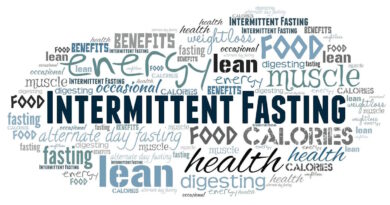How to Prevent the next Pandemic
by Linda DeStefano
Translated by Rob English
“It just boggles my mind that when we have so many diseases that emanate out of that one human-animal interface that we don’t just shut [wildlife markets] down. I don’t know what else has to happen for us to appreciate that.”… “What we’re going through now is a direct result [of wildlife markets].” (thehill.com, article by Joseph Guzman)
These words are from an interview on Fox News with Dr. Anthony Fauci, Director of the National Institute of Allergy and Infectious Diseases. Dr. Fauci is a member of the White House Corona Task Force and has been guiding public behavior to slow the spread of Covid-19. Another name for the wildlife markets is wet markets. These are places where wild and domestic animals are crammed into cages and slaughtered on the spot. Blood, feces and urine make for extremely unsanitary conditions. Species of animals who ordinarily would not be in close contact with each other are forced into this hell hole and transmit disease viruses between species.
These mutate and eventually find their way into humans. Wildlife markets have been implicated in the spread of several disease outbreaks in recent years, including Severe Acute Respiratory Syndrome (SARS), avian influenza or bird flu, Ebola and Middle Eastern Respiratory Syndrome (MERS). The novel coronavirus pandemic was also traced to a wildlife market in Wuhan, China.
It isn’t only China and some other foreign countries which maintain wildlife markets. They also exist in the U.S., including several in NYC. I suggest people communicate with Gov. Andrew Cuomo and ask him to shut these down. You can send an email through his website www.governor.ny.gov or send a physical letter to him at Executive Chambers, State Capitol, Albany, NY 12224.
Another type of business which has been the incubator for viruses is factory farming. These operations keep thousands of animals crammed into cages inside huge buildings. The pigs, chickens, cows and other animals are so stressed by the poor conditions they endure that antibiotics are routinely administered to keep them alive until they are transported for slaughter.
According to Michael Greger, M.D. of Nutritionfacts.org:
The largest and oldest association of public health professionals in the world, the American Public Health Association, has called for a moratorium on factory farming for nearly two decades. Its journal published an editorial entitled “The Chickens Come Home to Roost” that went beyond calling for a deintensification of the pork and poultry industries:
“It is curious, therefore, given the pandemic threat, that changing the way humans treat animals, most basically ceasing to eat them, or at the very least, radically limiting the quantity of them that are eaten—is largely off the radar as a significant preventive measure. Such a change, if sufficiently adopted or imposed, could still reduce the chances of the much-feared influenza epidemic. It would be even more likely to prevent unknown future diseases that, in the absence of this change, may result from farming animals intensively and killing them for food. Yet humanity doesn’t even consider this option.”
Dr. Greger goes on to say:
• This may be changing, thanks to food innovations like plant-based milks, egg products, and meats.
• Our food choices don’t just affect our personal health but our global health. Not just in terms of climate change, but in terms of pandemic risk.
• Major meat producers have started blending in vegetable proteins to make hybrid meats like Tyson’s “Whole Blends” sausage links and Perdue’s “next generation” chicken nuggets. The world’s largest pork producer, Smithfield, recently launched a whole line of plant-based products. Egg-free mayo has taken the sandwich spread sector by storm, and Quorn, a brand of meat-free meat made from the mushroom kingdom, opened a facility capable of producing the meat equivalent of twenty million chickens per year.
• While these products may not be the healthiest from a personal standpoint, they tend to be healthier than their animal-product counterparts and, from a pandemic standpoint, they present zero risk.
• What about cultivated meat? The primary human health benefit of a slaughter-free harvest would be food safety. (If you make meat without intestines, you don’t have to worry about fecal bugs like Salmonella, and if you make meat without lungs, you don’t have to worry about brewing respiratory viruses). Growing meat directly from muscle cells has been touted for the environmental
benefits – reducing water use and greenhouse gas emissions as much as 96 percent and lower land use by as much as 99 percent – but factoring in a pandemic risk, the benefits to human health may rival those to planetary health.
SOURCES:
thehill.com article by Joseph Guzman
“A Humane World” blog by Kitty Block and Sara Amundson of the Humane Society of the U.S.
“Takeaways from my Webinar on Covid-19” by Michael Greger, M.D. of nutrition facts.org April 16, 2020
“Calls Grow to Ban Wet Markets Amid Concerns Over Disease Spread” by Jackie Northum on National Public Radio, April 16, 2020 npr.org
Linda is President of People for Animal Rights, which works to protect the Earth, which sustains us all. You can reach PAR at P.O. Box 15358, Syracuse 13215-0358. Sending an email to people4animalrightscny@gmail.com or calling us at (315)488-PURR (7877) between 8 a.m. and 10 p.m. or go to our website at peopleforanimalrightsofcny.org

